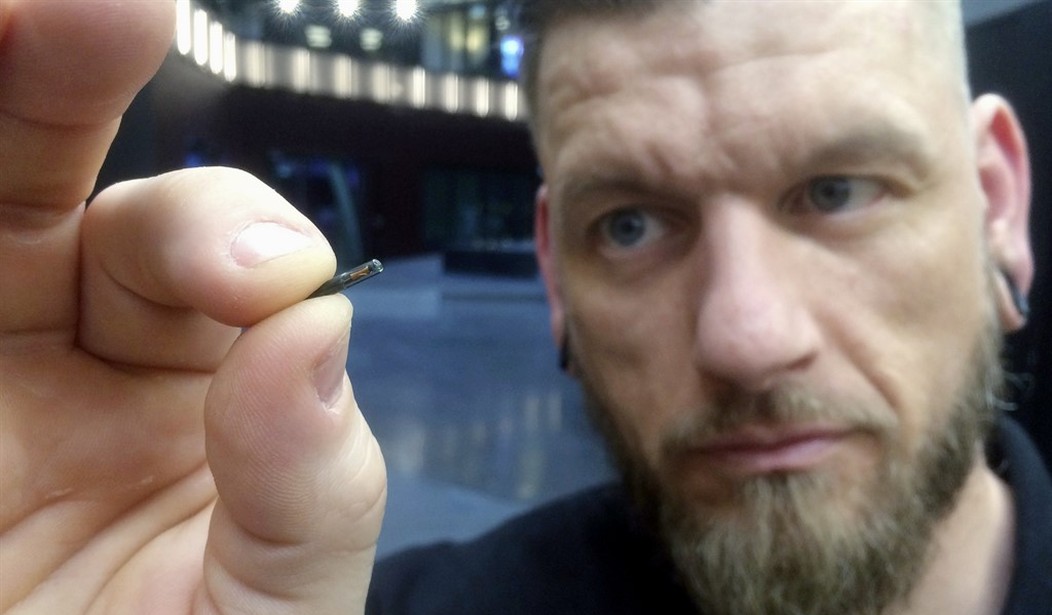I got you … under my skin. When Frank Sinatra crooned that line, it referred to romance. Wisconsin’s Three Square Market wants its employees to get their company literally under their skin, implanting microchips that operate security devices and allow for purchases in the company commissary. So far the effort is voluntary, but it raises questions about how far employers will go for security and loyalty:
Dozens of Wisconsin workers now have microchips implanted in their hands to act as ID cards https://t.co/IieD0R1xRN pic.twitter.com/PPqkWYB7W5
— CBS News (@CBSNews) August 2, 2017
CBS covered this story last week, but offered the on-air update this morning after the Washington Post offered a follow-up yesterday. The company, Three Square Market, wants to sell the technology in the US after having already been sold in Sweden by the original manufacturer. They want to use its own employees to promote the use of RFID tagging of people in order to normalize it for the US. As they note, it’s not the first time that’s been tried:
Sixteen years ago, Applied Digital Solutions, a company in Delray Beach, Fla., introduced a microchip called VeriChip that could be implanted in human arms to store medical records.
Doctors said at the time that they hoped to trace a patient’s history with a hand scanner — a useful ability, the company asserted, if someone is unconscious or confused.
But while VeriChip won approval from the Food and Drug Administration in 2004, the device never caught on with consumers. Some people expressed privacy concerns: Could they be tracked?
By 2008, the company stopped making the device, citing low sales.
Nevertheless, the existence of implanted microchips prompted several states to pass laws against mandatory implants, including in Wisconsin, where Three Square Market operates. Accordingly, the “chipping” this week was voluntary, at least nominally. But for how long? TSM threw a “chip party” for those who volunteered, complete with t-shirts celebrating their choice. Since the company plans to heavily promote the idea of “chipping,” employees who resist participating in the project have to wonder just how secure their position in the company will be in the long run. It may be technically voluntary, but peer pressure and job concerns can exert a powerful influence.
The Post notes that some will have religious objections to RFID tagging, especially evangelical Christians who see it as “the mark of the Beast” (from Revelation 13:16-18). You don’t need to be religious to find the entire exercise pretty creepy. RFID can be used for lots of things, including tracking of objects, and it only takes a moment’s thought to realize why that might be very valuable for an employer. So you called in sick, but we didn’t get a hit on your chip when we drove by your house …
Besides, what happens when you change jobs? Do you have it removed, or does your next employer simply add your codes and distinctiveness to their own collectives? Does your previous employer delete your codes from their databases? How can one prove it’s working properly, and do employees or the microchips get the benefit of the doubt when it comes to disputes?
As long as it’s voluntary, count me among those who will have a chip on my shoulder and not in my hand.








Join the conversation as a VIP Member